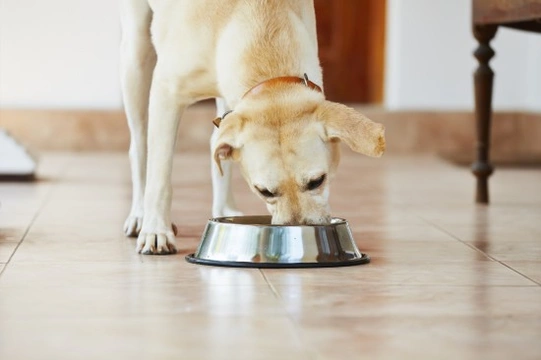
Why do some dogs become aggressive at mealtimes?
Dogs are naturally very protective over their food, and in the wild, defending their hard-won meals against predators and other dogs can mean the difference between thriving and starvation. Even within cooperative dog packs, fights and battles for dominance often play out over food, and competition for food is one of the common pinch points that can cause upheaval within a dog pack, or power plays for dominance and the alpha role.
While our domestic pet dogs literally get their meals handed to them on a platter, do not have to find their own food and never have to worry about where their next meal is coming from, this is a very recent evolutionary change in the lifestyle of the dog, and one that the instincts of dogs have not fully caught up with.
This can lead to resource guarding behaviour, possessiveness over meals and food, and sometimes, aggression towards other dogs or people that are nearby during your dog’s mealtimes.
Read on to learn more about the causes of canine aggression at mealtimes.
Fighting for dominance
Mealtimes are one of the key times when you will potentially see your dog either assert dominance or attempt to assert dominance over other dogs present, or even people. In the pack structure, the alpha dog or boss dog expects to eat first, and this means having the pick of the available food before other dogs present get to eat. Even if you feed your dogs the same food in the same quantities at the same time and there is plenty for everyone, your dog might still feel entitled to pick their bowl and eat from every bowl if they wish to until they are full, before the other dogs present can eat.
Obviously, this is not behaviour that we as owners condone or encourage, and we want our dogs to be able to eat side by side without incident; but this is a fairly alien concept to the dogs themselves.
Fear aggression
When your dog is eating, their attention is on their food, which can leave them vulnerable (in the wild) to stealth approaches and attacks by predators and other dogs. Within the home, this can lead to snapping, snarling and warning growls if approached by another dog or person while eating, both in order to discourage the approaching person or dog from attempting to take their food, and as an evolutionary response to distractions while eating.
Excitement
Dogs really love their food! Most dogs get very excited at mealtimes and once they start to pick up the signs that they are about to be fed, may begin barking, jumping up, or following you around and carefully supervising your preparation of their meals! As with any situation where your dog is excited and has their mind on a prize (dinner in this case) they may begin to forget their manners and training, and display behaviours that they usually wouldn’t do, such as jumping for their food or snapping at the bowls before you put them down.
This should be corrected by training, before it becomes a major issue.
Pain or discomfort when eating
If your dog’s teeth are in poor condition or they are otherwise affected by discomfort when they eat, such as a stomach upset or problems with the digestive tract, eating can be very stressful for them. They know that they need to eat and they very much want to enjoy their meal, but any type of pain or discomfort when eating, either caused by eating itself or due to an unrelated health condition, can lead to defensive aggression.
Get your dog checked out by your vet if you are concerned that your dog might have any dental or digestive problems, or that there might be any other underlying cause for snapping or aggression at mealtimes.
Eating speed
Different dogs eat their food at different speeds; some dogs literally wolf their food down without chewing, while others like to take their time.
Eating very quickly can be due to a variety of factors including hunger or a simple love of their food, or may be out of concern that if they do not eat quickly enough, their food may be taken from them. Try to slow down a fast eater by placing obstructions in their food bowl, which they have to eat around to get their meal.
If your dog eats particularly slowly and you have another dog present, you might find that the faster eating dog soon finishes their own meal and then applies either direct or indirect pressure to the other dog to give up their meal.
This can prove stressful to the slower dog, and can lead to them snapping at other dogs or people if disturbed, or upping their eating speed to account for this, neither of which is a good thing.
Make sure that your dog is able to eat at their own pace without being hassled, and ensure that they feel secure and able to take their time at dinner time.



